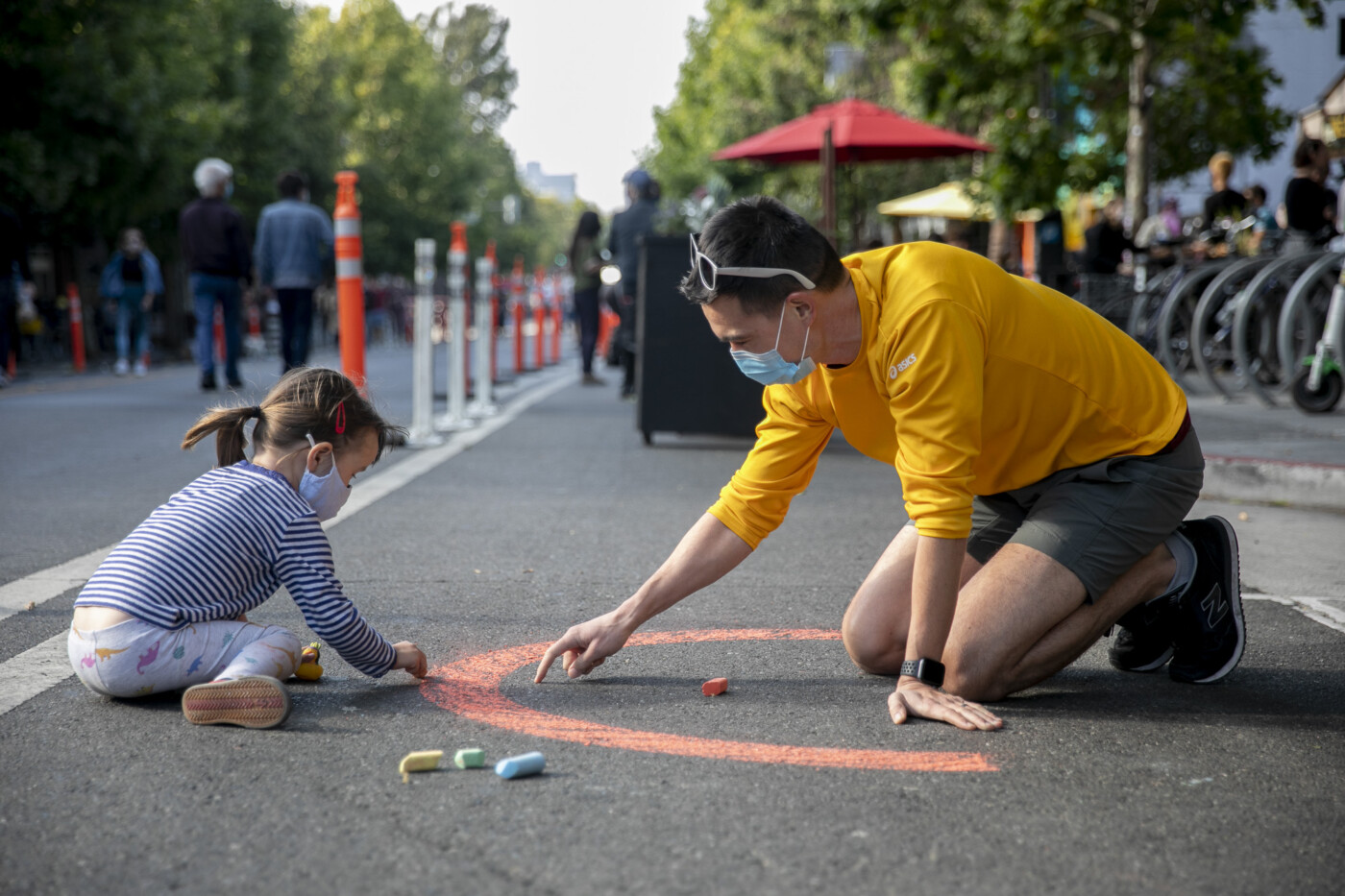Three prominent child health experts offered suggestions for families struggling with the multiple crises confronting the state and nation.
Life for California’s children in the midst of a pandemic – not to mention fast-spreading wildfires and a record-breaking heat wave – is beyond stressful right now, and many parents and caregivers are asking: How can we do better by our kids?
Three prominent child health experts offered helpful suggestions and context Thursday in an online discussion hosted by CalMatters that touched on the potential long-term effects of COVID-19 on mental health, what behaviors to watch for in your child and how to help them better cope.
As children return to mostly online schooling and California’s COVID-19 cases surge past 632,000, many families are struggling with financial distress as well as health concerns. Devastating wildfires across the state have intensified families’ stress.
Signs of mental distress will vary by child and their stage of development, said Dr. Nadine Burke Harris, a pediatrician and California’s surgeon general. She has been a pioneer in research linking childhood trauma to mental and physical problems later in life.
“Check in with your kids to see how they’re doing,” said Burke Harris, who has four children ranging from 4 to 17. “Ask little kids, ‘How are you feeling?’ Give them an opportunity to express what’s going on.”
Even infants can display symptoms of stress, such as unusual fussiness or disruptions in sleep or feeding patterns. Toddlers and preschoolers might regress after reaching developmental milestones like potty training, Burke Harris said.
With older children, some may have trouble with impulse control or calming down while others may display physical symptoms such as headaches or stomachaches. Teens may withdraw or be more irritable, she said.
The pandemic has increased the risk of domestic violence and child abuse as parents experience financial stress, illness and the potential loss of their homes, said Dr. Sergio Aguilar-Gaxiola, director of the UC Davis Center for Reducing Health Disparities. COVID-19 has disproportionately affected Black and Latino families and their children. About 72 percent of California children infected with the disease are Latino, even though they comprise about 48 percent of the state’s child population.
Fortunately, most children “are resilient by nature,” said Aguilar-Gaxiola. He hopes parents will aim for prevention, early identification of potential mental health issues, and intervention by a mental health professional when needed.
“Don’t think you have to solve everything alone. It’s okay to reach out when there’s a mental health issue…there’s help out there,” said Patricia Lozano, executive director of Early Edge California, an early learning advocacy group.
“The number one ingredient for a healthy child is a healthy caregiver. It’s really important for us to put on our own oxygen masks so we can be good caregivers to our kids.”
Dr. Nadine Burke Harris, pediatrician and California’s Surgeon General
One of the most important factors in staving off the long-term harms of childhood stress is stable, nurturing relationships, said Burke Harris.
And all the things she recommends caregivers provide for children – a regular schedule, good nutrition, daily exercise, social interaction (online or physically distanced) with relatives and friends, and opportunities for mindfulness or meditation – adults should aim for, too.
“The number one ingredient for a healthy child is a healthy caregiver,” Burke Harris said. “It’s really important for us to put on our own oxygen masks so we can be good caregivers to our kids.”
One way parents can avoid sharing their own stress with their children is to reframe problems as opportunities. For example, if a child resists distance learning or wearing a mask, present it as a way that the child can help the community, Burke Harris said.
It’s important for adults to role-model the need to help others and their community, Aguilar-Gaxiola said.
If all this feels challenging to parents and caregivers trying to navigate work or unemployment, child care and their own distress, that’s appropriate, Burke Harris said.
“This is a once-in-100 years pandemic,” she said. “Give yourself and your children breathing room and empathy.”
Here are resources for parents and caregivers to help children cope with life during the pandemic:
- Resources for emotional support and well-being – California government
- Manage stress for health (“Stress-busting playbook”) – California government
- ACEs Aware Initiative – ACEs Aware
- CalHOPE Warm Line: (833) 317-HOPE (4673) – Free telephone service offers support and resources for families affected by a national disaster.
- SAMHSA’s National Helpline: (800) 662-HELP (4357), or TTY (800) 487-4889 – Free telephone service in English and Spanish for people with mental health or substance use disorders.
